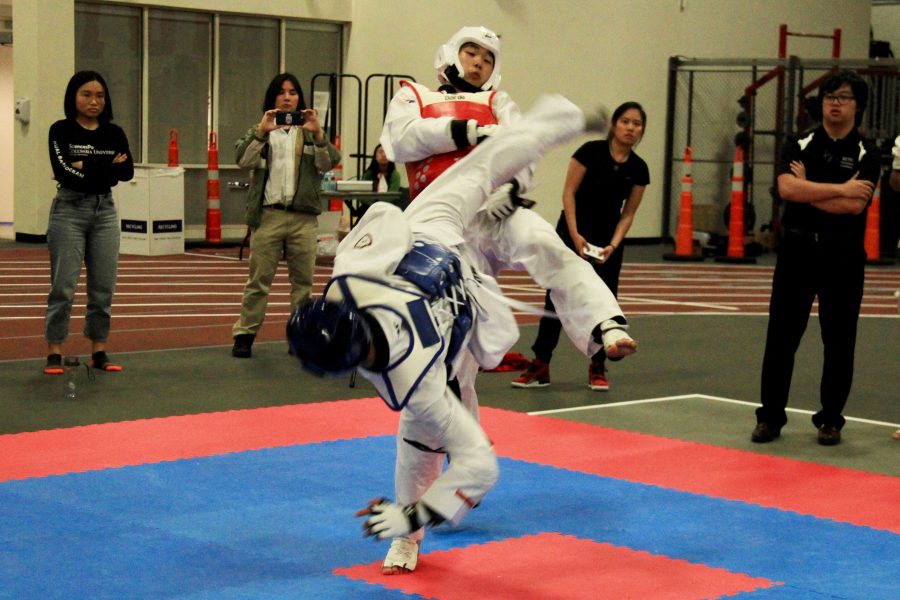It’s 9:30 p.m. on a Thursday in late October at Palladium Athletic Facility and the NYU taekwondo team is hard at work. The team begins with group stretches in their dobok, or uniform, wearing an array of colored belts. Everyone is together regardless of belt color or expertise.
They take this time to stretch, but they are also able to catch up on their day and connect with teammates. Soon afterward, they fall into their respective groups to begin practice.
Last year, NYU finished in third place in Division II, behind Boston University and Northeastern University. Despite taekwondo’s reputation as an intense physical contact sport that promotes aggression and competition, the club dynamic at NYU is warm and supportive.
The taekwondo team welcomes athletes of any level, providing many opportunities for improvement.
Grandmaster and Head Coach Mark Lesly founded the taekwondo team in 1987, four years after he started teaching a taekwondo class at NYU. He believes that the team should be a space where students feel comfortable and are able to truly learn the art of the sport.
“The overall culture in taekwondo is one of respect, courtesy and self-discipline,” Lesly said. “I admit to running a little bit of a more relaxed atmosphere at NYU than I would at a Taekwondo School, to accommodate what I see as fitting in with the NYU culture.”
The team practices every Tuesday and Thursday from 9:30 to 11:30 p.m. in Palladium, focusing on patterns, which are offensive and defensive techniques that are learned without a partner, before teaming up to spar with each other.
While fighters come to college with different levels of fighting experience and knowledge, the setup of collegiate taekwondo allows everyone to compete at their preferred levels.
In sparring, there are three levels of competition: A, B and C teams. The black belt fighters are on the A teams and fight using full-contact rules. The B teams fight with only kicks to the face allowed while the C teams are not allowed to kick.
“This kind of format makes the sport fun and playable for students of any level of experience, even with a few weeks of practice,” Lesly said.
“Don’t be intimidated if you’re a beginner.” Steinhardt junior Tomoka Masuda said. “There are lots of beginners on the team. The black belts are super helpful and we’re all really welcoming.”
While Lesly hopes for his athletes to develop their skills on the fighting mat, he also emphasizes the importance of fun.
“We want to strive for excellence, and compete with and beat the best, but we want to have joy in the process,” Lesly said. “As always, I look forward to seeing my athletes compete and improve, and I still get immense gratification from the looks on their faces when they achieve something that perhaps once, they never would have expected they were capable of.”
A version of this article appeared in the Monday, Nov. 4, 2019, print edition. Email Rebecca Choi at [email protected].






















































































































































